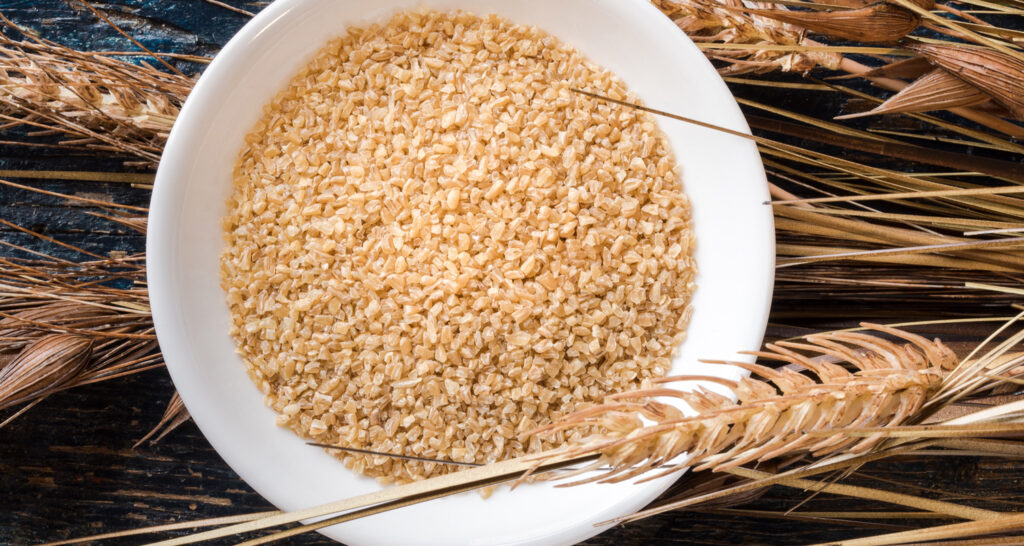Bulgur wheat is a versatile and nutritious grain that has been a staple in Middle Eastern cuisine for centuries. It is made from whole wheat kernels that have been steamed, dried, and then cracked into smaller pieces. This process allows bulgur wheat to retain many of the nutrients and fiber found in whole wheat, making it a healthy and delicious addition to any diet. In this comprehensive guide, we will explore the nutrition profile of bulgur wheat, its numerous health benefits, and provide tips on how to cook it.
Nutrition Profile of Bulgur Wheat:
Bulgur wheat is a nutrient-dense food that offers several essential vitamins, minerals, and fiber. A 1-cup (182g) serving of cooked bulgur wheat provides approximately:
- Calories: 151
- Carbohydrates: 34 grams
- Protein: 5.6 grams
- Fat: 0.4 grams
- Fiber: 8.2 grams
- Vitamin B6: 0.2 milligrams
- Folate: 29 micrograms
- Iron: 1.5 milligrams
- Magnesium: 79 milligrams
- Phosphorus: 166 milligrams
Bulgur wheat is low in fat and contains no cholesterol. It is also a good source of complex carbohydrates, which provide a steady release of energy. The high fiber content aids in digestion and helps regulate blood sugar levels, making bulgur wheat an excellent choice for individuals with diabetes or those seeking to manage their weight.
Health Benefits of Bulgur Wheat:
- Rich in fiber: The fiber content in bulgur wheat promotes healthy digestion and aids in maintaining bowel regularity. It can help prevent constipation and reduce the risk of developing conditions such as hemorrhoids and diverticulosis.
- Supports heart health: The high fiber and low-fat content of bulgur wheat contribute to heart health. The fiber helps lower cholesterol levels, while the low-fat content reduces the risk of cardiovascular diseases.
- Weight management: The combination of fiber and complex carbohydrates in bulgur wheat helps promote satiety, making it an excellent choice for weight management. It keeps you feeling full for longer, reducing the tendency to overeat.Blood sugar control: The high fiber content in bulgur wheat slows down the absorption of glucose into the bloodstream, preventing rapid spikes in blood sugar levels. This makes it a suitable grain for individuals with diabetes or those at risk of developing the condition.
- Nutrient-rich: Bulgur wheat is a good source of essential vitamins and minerals, including iron, magnesium, and phosphorus. These nutrients are vital for various bodily functions, such as oxygen transport, bone health, and energy production.
How to Cook Bulgur Wheat:
Preparing bulgur wheat is relatively simple and requires minimal effort. Here’s a step-by-step guide on how to cook bulgur wheat:
- Measure the desired amount of bulgur wheat and rinse it under cold water to remove any dirt or debris. Drain well.
- In a saucepan, add one part bulgur wheat to two parts water or broth. For example, if you’re using 1 cup of bulgur wheat, add 2 cups of liquid.
- Bring the water to a boil over medium heat.
- Once boiling, reduce the heat to low and cover the saucepan with a lid. Simmer for about 10-12 minutes or until the bulgur wheat has absorbed all the liquid and is tender.
- Remove the saucepan from heat and let it sit, covered, for an additional 5 minutes to allow the bulgur wheat to steam.
- Fluff the bulgur wheat with a fork to separate the grains.
- Your cooked bulgur wheat is now ready to be enjoyed as a side dish, in salads, or as a base for various recipes.
- Bulgur wheat can be used in a wide range of dishes, such as pilafs, salads, stuffings, and even as a substitute for rice or couscous. Its mild, nutty flavor pairs well with vegetables, herbs, and spices, offering endless possibilities for culinary creativity.
- In conclusion, bulgur wheat is a nutritious and versatile grain that provides an array of health benefits. Its high fiber content, along with essential vitamins and minerals, supports digestive health, heart health, weight management, and blood sugar control. By incorporating bulgur wheat into your meals, you can enjoy a delicious and wholesome addition to your diet. Experiment with different recipes and flavors to make the most of this ancient grain’s potential.
- Adventure Awaits: My Fun Review of the Vessel Expedition Series Vape Pens! - July 29, 2024
- Bulgur Wheat Nutrition, Benefits, and How to Cook It - July 15, 2023

